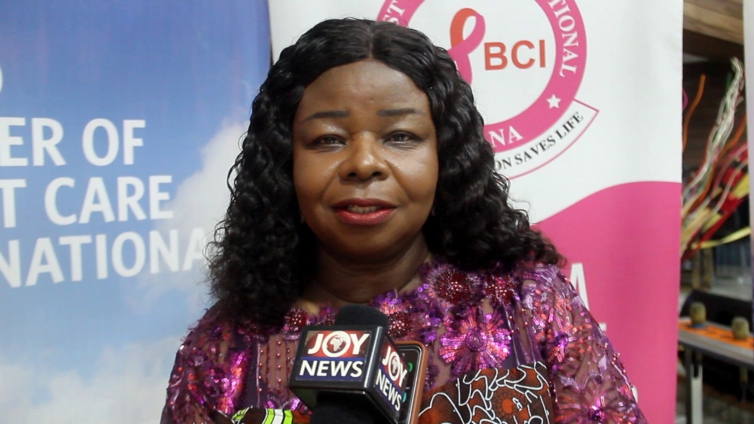“Most children are unaware of breast cancer and do not bother about any changes that may happen to the breasts so the parents must actively monitor in their stead."
That is the recommendation of Dr Beatrice Wiafe-Addai, President of Breast Care International (BCI), encouraging Ghanaian parents to inspect their children's breasts on a regular basis to detect changes in size, shape, and texture.
Normal breast tissue has a nodular (lumpy) texture that varies from woman to woman. Even within a single woman, the texture of her breast tissue changes throughout her menstrual cycle and throughout her life.

Dr. Wiafe-Addai's advice at the Upper Room Assemblies of God Church in Kwadaso Estate near Kumasi came six months after a Springer Nature published on female high school student's knowledge and attitude toward breast cancer.
According to the findings of the study, more than 87% of students were either unaware or had erroneous information about breast cancer screening. There was a strong relationship between the type of breast cancer information sources and students' general knowledge.

"Most students were aware of the risk of breast cancer, but they were uninformed of its symptoms, risk factors, and prevention strategies, and students with a family history of breast cancer had a higher score in terms of mammography knowledge than students with no family history of breast cancer, although this difference was not significant," according to the publication.
According to the findings of a study conducted in Fasa High School Girls in Iran, the degree of awareness and attitude of Fasa high school girls toward breast cancer and screening procedures is not acceptable. As a result, it is suggested that educational programmes be created in schools to raise student awareness so that the number of screenings increases with the institutionalisation of this information.
The situation in Ghana is similar, as Dr. Wiafe-Addai finds that most children are unaware of the disease. She believes that the present rate of breast cancer detection among children in the country necessitates quick action.

According to her, as part of educational initiatives to raise children's awareness, parents should talk to their children about breast cancer disease, examine their breasts for changes, and tell their children to alert them if they notice something unusual.
Dr. Wiafe-Addai's team who visited the church included a US-based nurse, Martha Drohobyczer, who is an advanced practice registered nurse with specialised training in both obstetrics-gynecology and psychiatric care.
Martha, who has consistently diagnosed cancer and prescribed drugs, encourages women to seek early detection and treatment.

Though Martha did not perform breast cancer exams when she first began practicing in 1995, they have become mandatory since the year 2000.
“We do regular screening – and through education we have been able to lower the risk for breast cancer,” she said.
According to Dr. Wiafe Addai, children who observe changes in their breasts are sometimes too hesitant to approach their parents and instead confide in their friends, who may give little or no guidance.

She also dispels anxieties that changes in the breasts could be breast cancer and reassures the public that having the disease does not mean death.
She states that the condition is identifiable, treatable, and preventative provided disease education is followed and taken seriously.
Latest Stories
-
‘We are sorry but we need to stay calm’ – Andre Ayew on Black Stars recent form
7 mins -
Election 2024: Bawumia dares Mahama to two-man debate
12 mins -
Bawumia is a man of integrity and discipline unlike Mahama – Miracles Aboagye
17 mins -
Ejisu by-election: NDC is sponsoring Aduomi; don’t vote for him – Bawumia to NPP supporters
21 mins -
Freedom of speech must engender development
24 mins -
Ghana Hajj Board announces flight schedules for 2024 pilgrimage
30 mins -
T-bills: Interest rates increased for first time since January 1; government fails to meet target
2 hours -
Ghana retains 10th position with lowest fuel price in Africa
2 hours -
Mahama cuts sod for new Jakpa palace in Damongo
3 hours -
Will Ghana’s democracy stand the test of time in the 2024 elections?
5 hours -
Hindsight: Dreams fairytale run proved one thing; it is possible
6 hours -
God makes rulers, not you; you can’t choose your successor – Mahama to Akufo-Addo
7 hours -
Contributors own SSNIT, they must decide who becomes its Director-General – Austin Gamey
8 hours -
Move away from theory-based learning towards practical learning approaches – AUCC President to students
8 hours -
Haaland scores as Manchester City beat Nottingham Forest
9 hours

